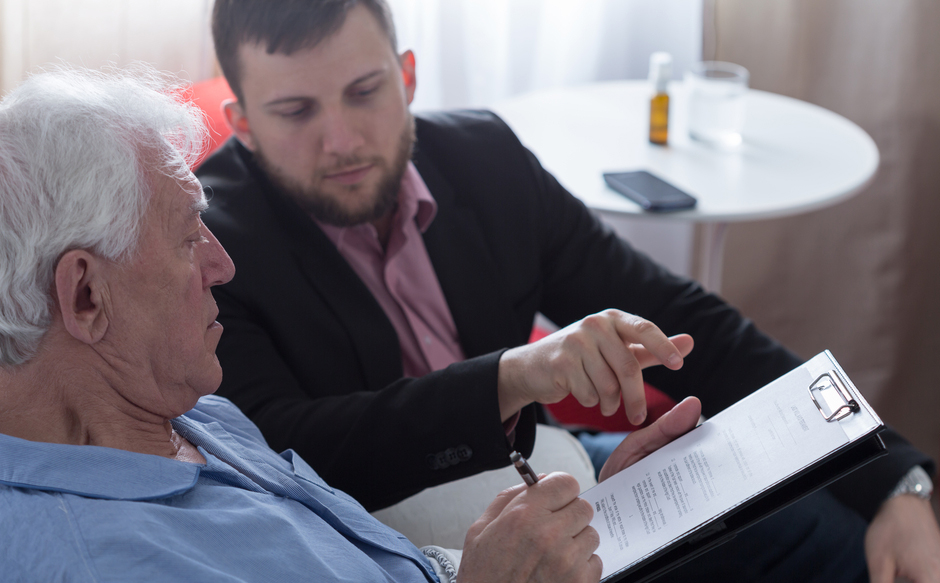Imagine being an elderly person with diabetes, without a steady income, not eligible for medical insurance, behind on rent, unable to pay for medication, and running out of food at home.
If that doesn’t sound complex enough, imagine this elderly person also lacks family support and overall has a poor understanding of her medical condition, which is causing her health to decline. The medical care team is concerned about her high A1C levels, an indication that her diabetes is not in control, increasing her risk for complications.
For Open Door’s Patient Advocates, these scenarios are often a reality. The team, all of whom are bilingual, works to help their patients better manage and understand their medical conditions. They educate their patients and intervene when necessary. This can mean assisting them in filling out the required paperwork for programs such as SNAP (Supplemental Nutrition Assistance Program) or Medicare; finding resources for healthy and affordable food, clothing or medications; or connecting them with medical specialists. Patient Advocates serve as skilled health system navigators who empower individuals to confidently access the care they need, all at no cost to patients.
“It really depends on what the patient needs,” said Jessica Saltos, who has spent nearly a decade as a Patient Advocate and is also working towards a Master’s Degree in Social Work. “We want to point them in the right direction and reduce the barriers, which are often social and financial, that get in the way, so they can focus on the medical part of their illness.”
Lifestyle Changes
Many of the patients who come to Open Door are of Hispanic background and bring their food traditions with them. Foods commonly consumed by Open Door’s patient population include rice, corn tortillas, fruits, and potatoes. For those managing diabetes, one goal may be to reduce the frequency or volume at which they consume their favorite foods while increasing vegetable consumption to help them better manage blood glucose levels. For those needing to improve their medical conditions, one of the biggest issues Patient Advocates hear about is the need to eat “tasteless” food. For example, for someone who needs to lower their blood pressure, the amount of salt (sodium) used during cooking is an important factor. This could mean having to replace the Adobo, “Sazon” or seasoning cubes, with dry spices. The Open Door team approaches these health promotion conversation by balancing each patient’s traditions, preferences and health needs.
“It’s a cultural thing,” said Saltos. “It’s hard for some of our patients to stop eating certain things, like tortillas. We start out by telling them to eat four instead of five, and go from there. We work on teaching them portion control instead of getting rid of a favorite food. Some, for example, don’t realize that alcohol has a lot of sugar which makes their diabetes worse. They may not disclose this to their clinician.”
“The problem is that food is expensive, and white rice costs less than brown rice. So, we connect them with programs like Food is Medicine (formerly known as Green Thumb) or local food pantries where they can get fruits and vegetables and there are healthier options that are lower in salt.”
Separating myth from fact is also important.
“Many patients simply associate sugar with candy, as something they need to avoid,” said Yanira Padilla-Cruz, Associate Director of Care Coordination at Open Door. “Or they believe they can only eat vegetables. The Patient Advocates relate the importance of taking good control by watching portions, yet letting them know they can still eat what they like.”
It’s also about changing perceptions. “One patient was given huge portions of food by his wife because she felt her husband works hard and at the end of the day needs the extra food,” said Padilla-Cruz. “His feeling was that if it’s there he’ll eat it because he doesn’t want to waste it, while his wife figures if he doesn’t want it, he won’t eat it. It’s about getting them to work together. The Patient Advocates are there to listen, build trust, and work through the challenges to change outcomes.”
Patients appreciate the effort. Cesar Tapia, 85 years old and a resident of Port Chester, has spent nearly 20 years as a patient at Open Door. He singles out Saltos, his long-time Patient Advocate, for special praise. “I will be very grateful to Jessica until the last moments of my life,” he said. “She is very attentive to my illnesses and my operations, and schedules my appointments with specialists. She has never left me alone and makes me feel safe. I have no words to show how grateful I am.”




